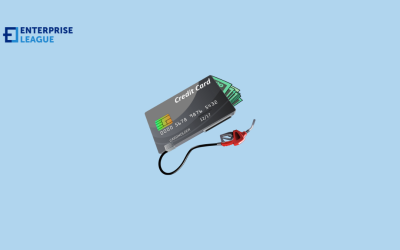Unlocking Vietnam real estate treasure: A foreign buyer’s guide to legal know-how
March 07, 2024

As the allure of real estate in Vietnam for expats continues to lure with its burgeoning opportunities, it is increasingly attracting foreign investors. However, the journey through its legal landscape can be as complex as it is promising. Here, we delve into simplifying and clarifying the legal procedures essential for international buyers of premises in Vietnam, ensuring a smooth and informed path to successful property acquisition.
Overview of Vietnam’s property market for foreigners
The local residential property market is experiencing a surge in foreign interest. In 2021, direct investment from abroad into the market increased by 12%, and such hotspots as Hanoi and Ho Chi Minh City emerged. These cities offer a mix of colonial charm and contemporary luxury, appealing to investors seeking both cultural richness and modern amenities. However, foreign buyers face unique challenges, including navigating the 50-year ownership cap and understanding local market nuances. Despite these hurdles, the market’s average annual property value growth of 6-8% over the past five years, coupled with thriving tourist destinations like charming Nha Trang and lucrative Da Nang, continue to attract a diverse range of investors, drawn to both the market’s potential and Vietnam’s vibrant cultural inheritance.
Understanding property ownership laws in Vietnam
Navigating Vietnam’s property ownership laws reveals a landscape shaped by reforms and regulations tailored to foreign buyers. Post-2015, the amended Housing Law allowed foreign nationals to purchase property, albeit with limitations. Foreigners can now own up to 30% of units in condominiums and, intriguingly, a maximum of 250 houses in a ward-level area. However, they face a 50-year ownership cap, extendable under certain conditions. This legal framework predominantly permits the purchase of apartments and houses in developed areas, steering clear of agricultural lands and areas of national defense significance. This progressive yet cautious approach by the Vietnamese government balances open-market aspirations with controlled foreign investment, maintaining a harmonious blend of accessibility and regulation.
Investment regulations for international buyers
The local terrain for residential property investment for people from abroad is defined by specific regulations, paramount for discerning buyers. Notably, the 2015 Law on Residential Housing permits foreigners with a valid visa to buy property, yet restricts ownership to 30% of the units in a condominium complex and 10% in a single project’s landed property units. Additionally, foreign entities can lease property for up to 50 years, a term extendable in special cases. This regulatory framework, while welcoming foreign capital, strategically limits foreign dominance in any single locality. Notable investment areas like beautiful Hanoi and impressive Ho Chi Minh City have seen significant foreign interest within these parameters, showcasing a balance between market openness and national interest preservation.
Step-by-step guide to the buying process
The property buying process in Vietnam for foreigners involves several critical steps:
- Engaging a real estate agent: Start by consulting a reputable agent, especially those familiar with expat-preferred hotspots such as industrial Hanoi and populated Ho Chi Minh City.
- Property selection: Identify potential properties that meet your investment requirements and budget.
- Due diligence: Conduct a comprehensive check on the property’s legal status and ownership history.
- Signing a reservation agreement: This often requires a deposit, usually 1-2% of the property value.
- Sales and purchase agreement (SPA): Formalize the terms and conditions of the purchase.
- Payment schedule: Typically involves a down payment (20-30%), followed by the balance upon handover.
- Property registration: Finally, register the property with the local Department of Construction to secure ownership rights.
By following these steps, foreign buyers can navigate the property acquisition process in Vietnam with greater ease and assurance.
Necessary documentation and legal requirements
In Vietnam, the property acquisition process for foreigners hinges on key documents and legal formalities. Essential paperwork includes a valid passport and a notarized copy, a valid Vietnamese visa, and, crucially, an Investment Certificate if buying through a company. The property’s legal status requires a Land Use Rights Certificate, confirming the seller’s rights and property specifications. A No-Debt Certificate from the property management ensures no outstanding dues. Efficient document processing involves liaising with seasoned local lawyers and reputable realtors, experienced in expediting such transactions in major localities like marvelous Ho Chi Minh City and lively Hanoi. Foreign investors should also procure a tax code from the Department of Planning and Investment, a mandatory step for property registration post-purchase, guaranteeing legally compliant and smooth property acquisition.
Navigating financial transactions
Navigating financial transactions in Vietnam’s property market requires understanding specific monetary protocols. Foreign buyers must transact in Vietnamese Dong (VND), necessitating a local bank account, for which a valid passport and Vietnamese visa are prerequisites. Regarding taxes, property transfers attract a registration tax equalling 0.5% of the property price. Additionally, there’s a value-added tax (VAT) reaching 10% and a personal income tax on property transfers, typically 2% of the transaction value. Notably, remitting funds from abroad follows profound counter-money laundering procedures; each large transaction requires documentation proving the legal source of the funds. Transferring funds typically involves a bank transfer, and it’s advisable to use reputable banks with experience in international transactions, ensuring compliance with Vietnam’s financial regulations and a smoother property acquisition process.
Role of real estate agents and legal advisors
In Vietnam’s intricate real estate market, the role of skilled real estate agents and legal advisors is indispensable for foreign buyers. A proficient agent, especially one well-versed in expat-favored towns, offers invaluable insights into local market tendencies and property appreciation. They act as navigators through Vietnam’s unique property landscape, providing access to off-market deals and negotiating terms. Equally crucial is a competent legal advisor, adept in Vietnam’s property laws, ensuring compliance with legalities like the 50-year ownership clause for foreigners. When selecting these professionals, verify credentials, seek relevant references, and choose specialists with a proven track record in assisting foreign clients. This combination of expert guidance not only streamlines the buying process but also safeguards the investor’s interests in Vietnam’s dynamic real estate sector.
Common pitfalls and how to avoid them
Foreign buyers in Vietnam often encounter specific pitfalls, the avoidance of which is crucial for a smooth property transaction. A common oversight is underestimating the legal complexities of the 50-year ownership cap, leading to future legal challenges. To circumvent this, thorough understanding and strategic planning with a legal expert are essential. Another frequent error is neglecting due diligence, particularly in verifying property titles and seller authenticity, often leading to disputes. Engaging a reputable local legal advisor for a comprehensive background check is vital. Additionally, overlooking tax implications, such as the 2% personal income tax on property transfers, can result in unforeseen expenses. Staying informed about such financial obligations and seeking advice from financial consultants familiar with Vietnamese residential property laws makes sure you invest in a financially sound and legally compliant property.
More must-read stories from Enterprise League:
- Importance of online privacy laws in the digital era and how they protect us.
- Unique and creative guerrilla marketing ideas for small businesses.
- Key factors in determining salary increases for your employees.
- Learn how to deal with rude customers in a creative way.
- All the reasons why we should support local businesses and shop local.
Related Articles
What Are the Top-Rated Fuel Cards for Businesses Operating Nationwide
Fuel expenses can eat into operational costs and profits if left unchecked. The bigger the fleet a company has, the more significant the loss. Specialized fuel cards emerge as a viable solution to boosting fuel savings, security, and streamlining expense management....
How do I reserve a space for a trade show in Pennsylvania
Trade shows are excellent business opportunities. Your upcoming event should occur in a space big enough to hold all participating brands while leaving room for visitors. Learning how to reserve a space for a trade show in Pennsylvania will help you find the best...
What Are the Best Event Venues for Corporate Meetings?
Finding the perfect event venue for your corporate meetings requires careful consideration of location, amenities, accessibility and reputation. The best venues provide excellent audio-visual capabilities, flexible meeting spaces, and professional decor options to...
What Are the Top-Rated Fuel Cards for Businesses Operating Nationwide
Fuel expenses can eat into operational costs and profits if left unchecked. The bigger the fleet a company has, the more significant the loss. Specialized fuel cards emerge as a viable solution to boosting fuel savings, security, and streamlining expense management....
How do I reserve a space for a trade show in Pennsylvania
Trade shows are excellent business opportunities. Your upcoming event should occur in a space big enough to hold all participating brands while leaving room for visitors. Learning how to reserve a space for a trade show in Pennsylvania will help you find the best...





